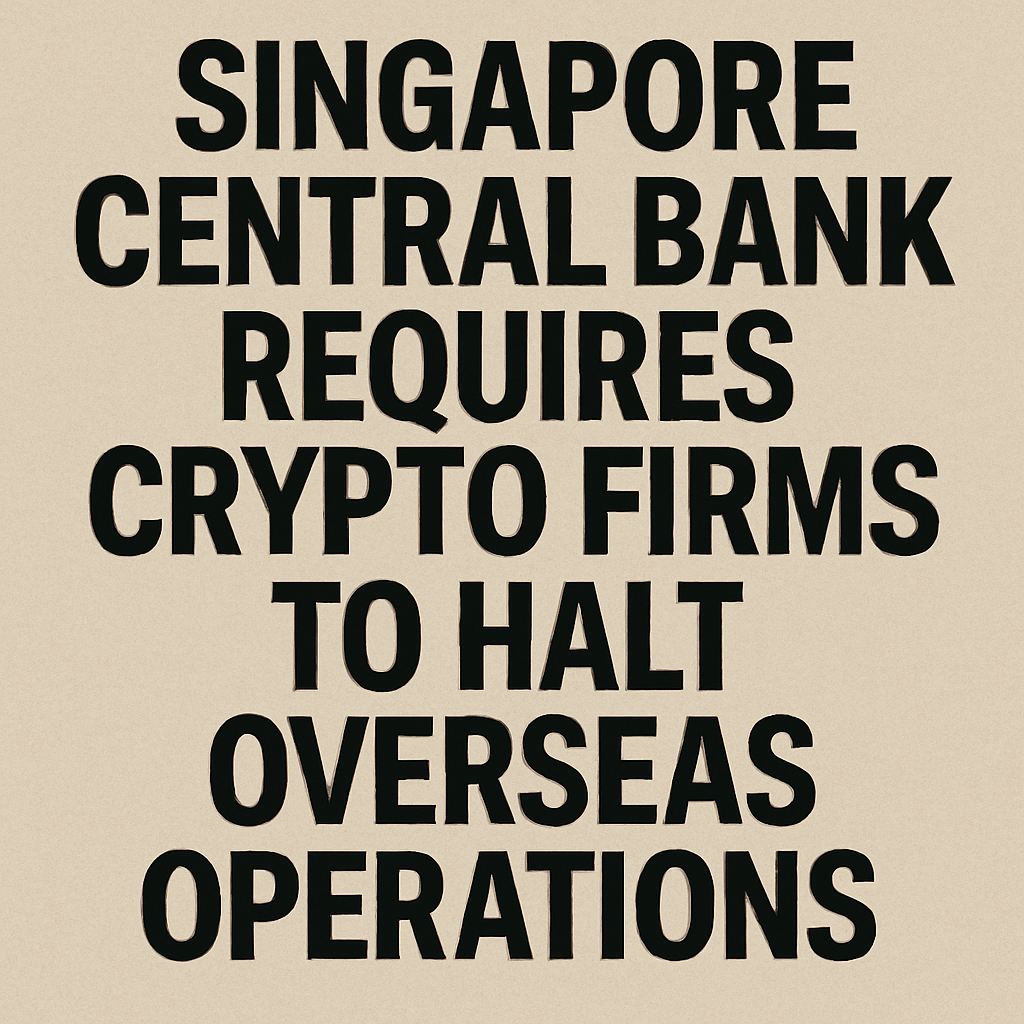Singapore Central Bank Requires Crypto Firms to Halt Overseas Operations


The Monetary Authority of Singapore (MAS) has instituted a firm deadline of June 30 for local cryptocurrency firms engaged in overseas market operations. This regulation follows concerns regarding the potential risks that unregulated overseas activities may pose to investors and the financial system in Singapore.
Regulatory Context and Objectives
As part of its regulatory framework, MAS aims to protect investors while fostering a stable financial environment. The decision to impose restrictions on overseas operations reflects a growing acknowledgment of the increasing interconnectedness of international markets and the risks that can arise from unexpected regulatory arbitrage. Under the new directive, any violations could lead to severe monetary penalties, with fines reaching up to S$250,000 (approximately $200,000).
Key Implications for Local Crypto Firms
- Operational Limitations: Companies will need to reevaluate their operational strategies, as many local businesses target lucrative markets abroad.
- Compliance Costs: Firms may face increased compliance costs as they modify their business models to adhere to local regulations.
- Market Withdrawal: Some businesses might opt to withdraw entirely from international markets, which could diminish Singapore’s attractiveness as a global crypto hub.
Market Reaction and Expert Opinions
The market’s immediate reaction has been mixed, with some analysts expressing concerns about the long-term viability of local crypto firms that primarily depend on overseas markets for profits.
Dr. Lee Jun-Hong, a financial analyst at a leading consultancy firm, stated: “While safeguarding investor interests is crucial, excessive restrictions could stifle innovation within the local crypto ecosystem. A balanced regulatory approach is required to nurture this nascent sector without undermining its potential for growth.”
Global Trends Influencing Local Regulations
The regulation in Singapore appears to be in line with a wider global trend aimed at enhancing oversight over the cryptocurrency landscape. Regulators worldwide, including institutions in the United States and the European Union, are contemplating stricter measures in response to increased market volatility and incidents of market manipulation. This global scrutiny is likely to underpin local regulations, as nations strive to ensure systemic stability amidst the rapid evolution of digital currencies.
Future Outlook: Navigating Uncertainties
Looking ahead, stakeholders in Singapore’s cryptocurrency sector must brace for potential shifts as other regulations may be rolled out in the coming years. Observers anticipate that firms will increasingly focus on integration with traditional financial systems as they adapt to comply with the evolving regulatory framework. Efforts towards transparency and rigorous compliance can position local firms favorably in a competitive global landscape.
Conclusion
With the strict deadline set by MAS, local cryptocurrency firms are now tasked with a challenging path ahead. As the industry grapples with stringent regulations, its ability to innovate and remain competitive will heavily depend on how well it can adapt while ensuring compliance with Singapore’s regulatory expectations.